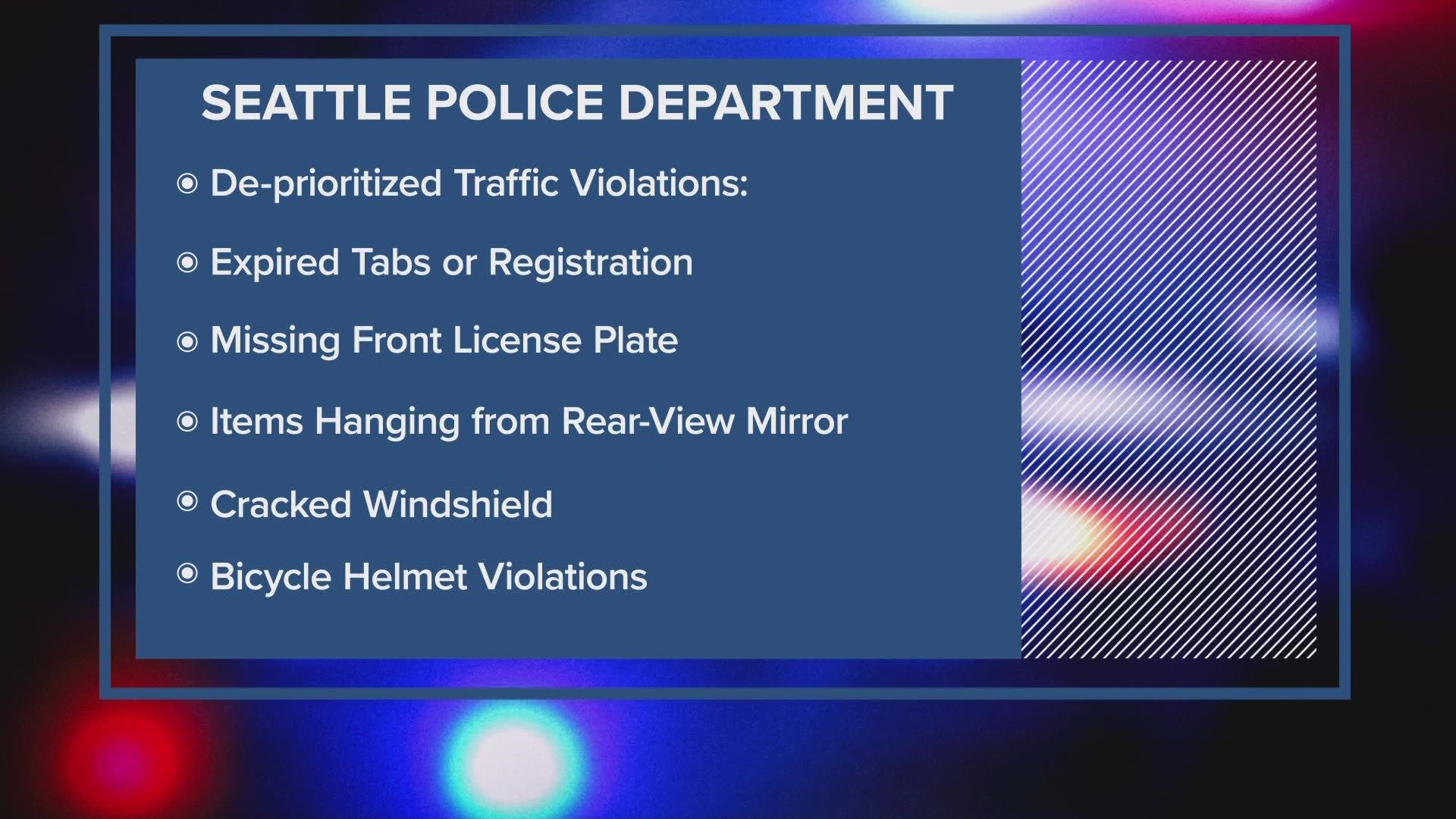SEATTLE — The Seattle Police Department (SPD) is reprioritizing what it takes for an officer to pull someone over, whether they are driving a car or riding a bicycle.
In a letter to the city’s Inspector General Lisa Judge, Interim SPD Chief Adrian Diaz said that his department will no longer treat the following as primary reasons to conduct a traffic stop:
- Expired or missing vehicles registration or expired license tabs
- Issues with displaying license plates, including no front license plates
- Certain technical violations including rear-view mirror ornaments and cracked windshields.
- Bicycle helmet violations including the failure to wear a helmet
Two caveats to the above list are officers will still enforce visual obstructions like snow, fog, non-transparent tint or a shattered windshield, and vehicles must still have a rear license plate.
Diaz wrote in his letter that the above violations “do not have a direct connection to the safety of other individuals on the roads, paths, or sidewalks.” Also, he expressed concern that those particular violations might fall mostly on those who cannot afford to comply financially.
Still, the above violations can still be enforced if another primary violation occurs.
All of these changes were recommended by a group assembled by Judge’s office, made up of community members from SPD, the city’s transportation department, elected officials public and private lawyers, the city’s Office of Police Accountability and others.
However, one recommendation from Judge’s office that Diaz said he did not include in the changes is ceasing primary enforcement for equipment violations, like a broken headlight.
“I support this recommendation in principle, but only if there are viable options to address the equipment violation,” Diaz wrote. “For pedestrian and driver safety, we cannot allow vehicles with safety equipment issues to just remain in that status.”
He added that SPD is working to find ways for those drivers to get these issues fixed, even when they can’t afford it.
“I know, together, and with current and additional stakeholders, we will critically examine additional violations for consideration. I trust the same process will be in place to help ensure good intentions do not produce unintended consequences,” Diaz wrote.

